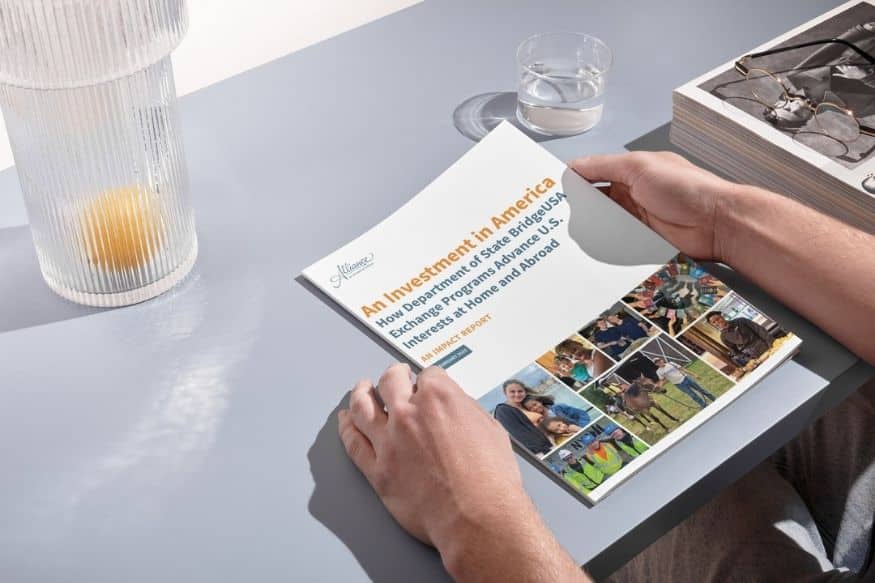
Image courtesy of InterExchange.
These acronyms are often used interchangeably. Here is a breakdown of their specific meaning:
TEFL (Teaching English as a Foreign Language)
This refers to teaching English in a place where it is not a native language. In countries or regions where English is “foreign,” learners aren’t likely to encounter it spoken organically in many day-to-day settings. A TEFL certificate prepares teachers to teach in these countries or regions.
TESL (Teaching English as a Second Language)
This generally means that the learning is happening where English is a common native language, so learners could have lots of exposure (such as in the United States, Canada or the U.K.). Because of the additional opportunities to practice with native speakers, many believe it’s easier to learn in TESL settings. A TESL certificate prepares teachers for these types of learners.
TESOL (Teaching English to Speakers of Other Languages)
This encompasses TEFL and TESL and can mean either one or both. The course prepares a teacher to teach a student whose native language isn’t English and who may know other languages in addition to his or her native one, meaning that English might be the student’s third or fourth language.
CELTA (Certificate in Teaching English to Speakers of Other Languages) Course
This is a specific brand of TESOL course operating under Cambridge University.
Why get certified?
Certification can help prepare you for the challenges that you may encounter in the classroom and introduce you to the struggles your students may have while learning English. Many certificate programs offer useful training in lesson planning and classroom management, which will contribute to your success as a teacher.
How long does it take?
It varies — some courses are as short as one week and some as long as several months. There is no single quality or minimum number of hours that makes a TEFL, TESL, TESOL or CELTA certification “the right kind.” This will depend on the organization doing the hiring, or, in some cases, the government of the country where the organization operates.
How much does it cost?
This depends on the length of course you choose and whether or not there is a practicum component (practice teaching with an experienced instructor observing).
Where can I get certified?
There are several providers. International TEFL Academy is an example of a provider offering both live courses and an online option requiring a teaching practicum. (Most of our Teach English programs will meet their practicum requirement.)
What else should I know?
Acquiring a TEFL, TESL, TESOL or CELTA certificate can certainly contribute to your success in the classroom, but there are other factors that matter just as much. Knowing the challenges that your students struggle with, what motivates them, what is likely to distract them and having traveled or engaged with non-native English speakers are all things that will enhance a teacher’s ability to deliver effective instruction.
If you’re planning to teach English abroad, here are a few more things that might help in addition to a certificate program:
- Learn as much of the language(s) native to that region as you can. This will not only help you communicate with your students, but it will also help you to identify with the challenges of learning a new language.
- Look for ways to connect with non-native English speakers in your own region. Experience with English learners, whether as a teacher or a conversation partner, will help you improve your teaching technique and train your ear to common challenges in communication among English-language learners.
- Talk to current or former teachers about their experiences. Ask about the challenges they faced and how they moved past them. If you are thinking of applying to one of our Teach English Abroad programs, we will be happy to connect you to one of our current or past participants, or their blogs. Just email us about it!




